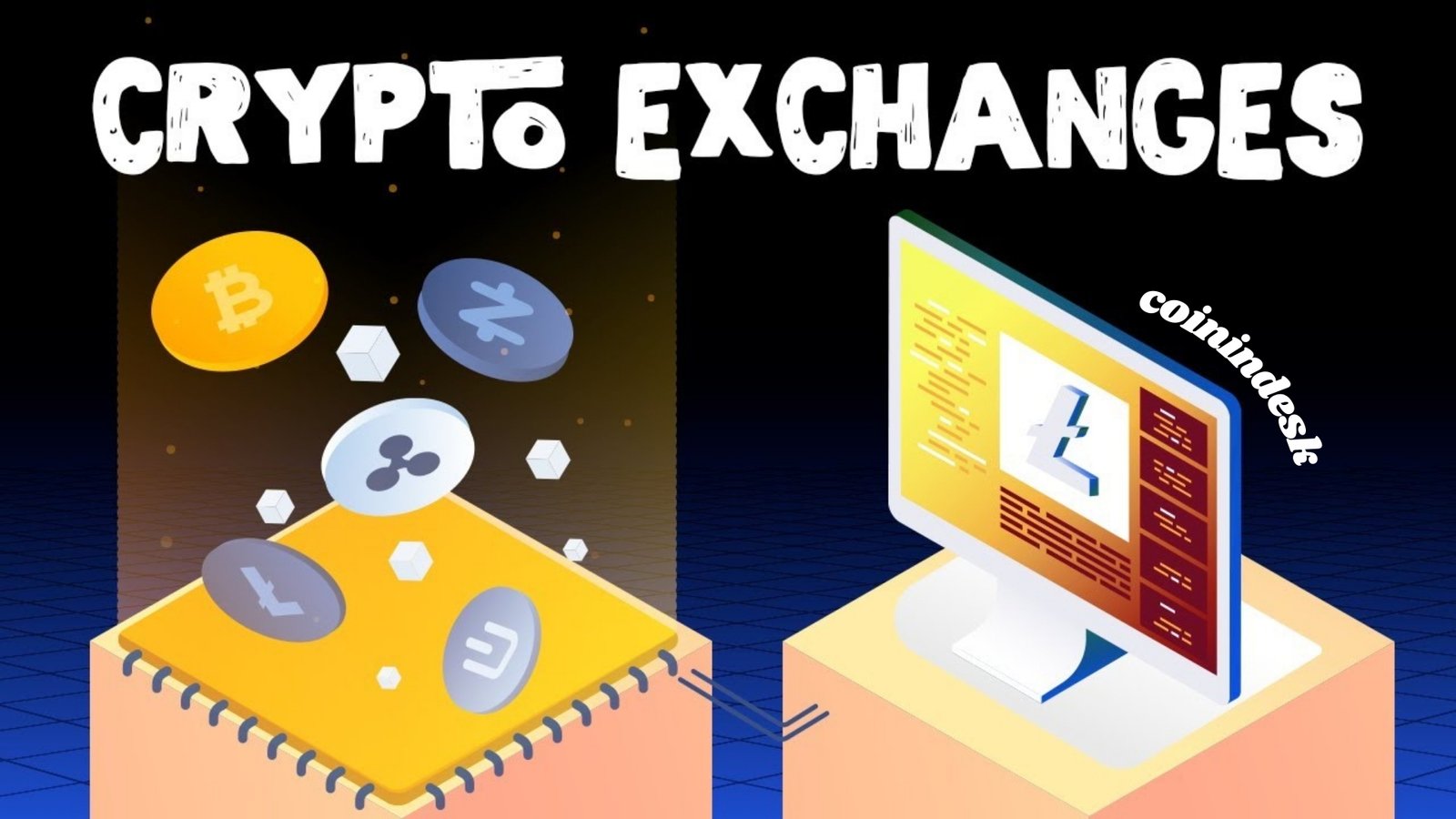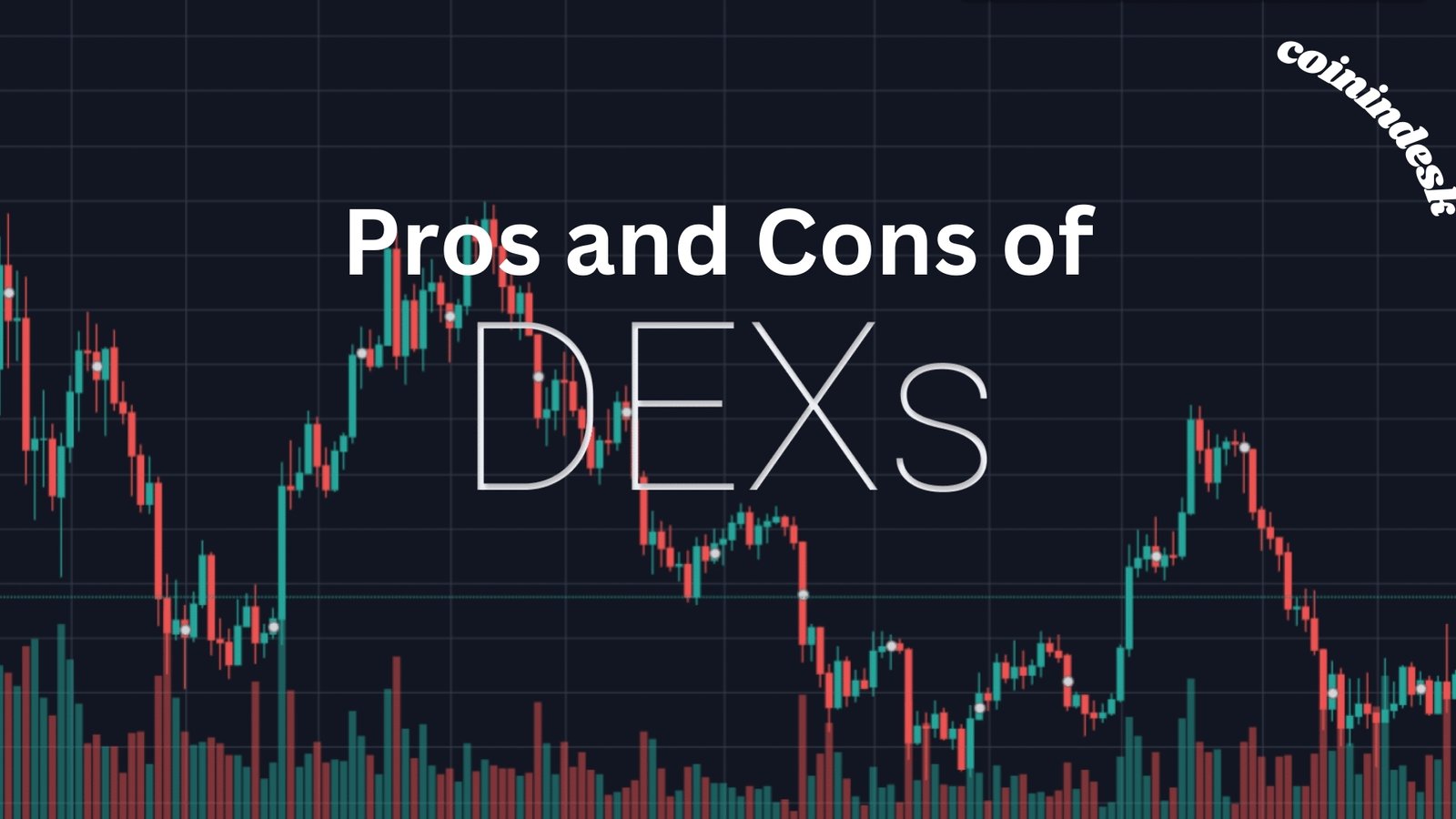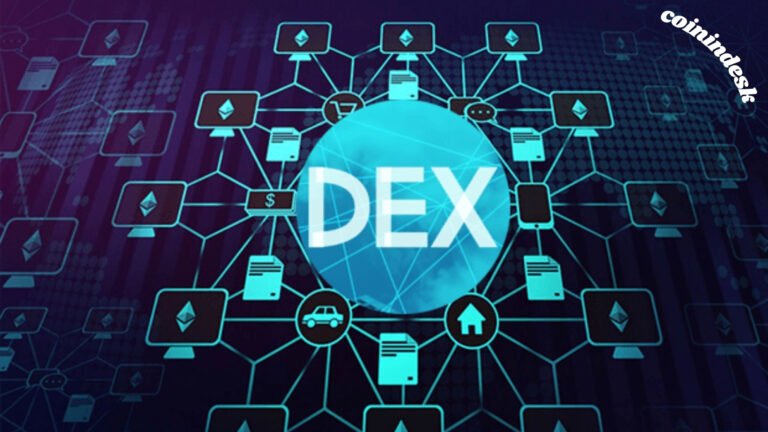Decentralized Exchanges: You can buy cryptocurrency using several different methods. Someone or an exchange might sell them to you. A decentralized exchange will always be necessary when acquiring digital assets.
As more people become aware of and adopt cryptocurrencies, they are quickly becoming a ubiquitous part of their lives. The range of applications for Bitcoin, Ether, and other well-known cryptocurrencies has grown substantially. People purchase cryptocurrencies for different reasons. Some buy them to make payments, some to invest in, and some to protect themselves from the collapse of more conventional financial systems.
How Cryptocurrency Exchanges Work

Investors can purchase, sell, and trade digital assets on cryptocurrency exchanges for other digital assets or fiat currency. They perform many things, but their main purpose is to make it easier to transfer digital assets.
Cryptocurrency exchanges serve various purposes, and the most prominent ones have diversified their offerings to include custody and leverage trading, among others. Some exchanges are approaching traditional businesses to expand cryptocurrency spending choices. It’s common practice for exchanges to manufacture Debit Cards that can be loaded with cryptocurrency and used to withdraw fiat money from ATMs.
Types of Cryptocurrency Exchanges
There are various varieties of cryptocurrency exchanges catering to different types of users and functions. Typically, there are three categories: hybrids, which mix centralized and decentralized services, and centralized crypto exchanges (DEXs).
Centralized Exchanges
The vast majority of trades take place on centralized exchanges. Trading cryptocurrency is a user-friendly process at CEX. Centralized platforms can take many shapes and sizes; examples include the most well-known exchanges, including Coinbase, Binance, BitMEX, Huobi, and OKEx.
The ownership structure is one feature that sets centralized exchanges apart from others. Usually, just one person or a small group owns centralized exchanges. However, you are charged a price to use the platform they control.
There is a lot of competition among centralized exchanges, so they typically have an incentive to innovate by releasing new products and services. This explains why many of them often introduce new products at a rapid pace. Some exchanges provide specialized services, custodial services, staking, and margin trading to retain users.
Decentralized Exchanges
Decentralized exchanges (DEXs) differ from centralized exchanges because a single entity does not own them. The platform decentralizes the exchange’s essential services. Order matching, capital deposits, asset trading/exchange, and order books are all part of this. No one person or server is in charge of a decentralized system.
Distributed nodes in the network eliminate a key intermediary, letting users execute smart contract-based exchanges. Because of this, the expenses and processing times linked with centralized exchanges are decreased. A few of the most well-known decentralized marketplaces include these:
Bancor
Bancor automates swaps as an on-chain liquidity protocol for Ethereum and other blockchains. The exchange using Bancor’s smart token makes fast, fee-free trades possible. Automated asset transactions are made possible by using BNT, a reserve currency. In addition, any asset can be automatically liquidated with Bancor’s liquidity mining software. Additionally, it provides BNT awards, temporary loss protection, and single-sided liquidity.
Uniswap
The Uniswap Automated Market Maker is among the most well-known options available. Users can become liquidity providers and earn benefits, much like similar platforms. This decentralized exchange stands out from the rest thanks to its unique pricing mechanism—the continual product market maker concept. Uniswap V3, the most recent release, continued by adding concentrated liquidity and various pricing categories. Therefore, better capital efficiency and risk management are the results.
Stackswap
The Stacks blockchain powers Stackswap, a newcomer to the decentralized exchange market and the first full-featured DEX on the Bitcoin network. The full release is scheduled for November 2021. The Stacks blockchain functions as a layer two chain on top of Bitcoin to enable smart contract capabilities. Token compensation schemes, a launchpad, liquidity provision for trading pools, and token swaps are all features it offers.
One unusual kind of token is Proof of Transfer-Lite (PoXL). This consensus technique is similar to Stacks Blockchain’s Proof of Transfer (PoX) in how it works. There is an inherent possibility that PoXL tokens may provide holders with yield in both STX and BTC.
Without Stackswap’s token launchpad, even non-programmers may issue PoXL tokens on the blockchain and give users a mining interface; this is a huge improvement over the previous method, which necessitated a lot of development resources due to the complexity of PoXL token deployment. Because of this, new ecosystem members can be onboarded more quickly and easily. The widely used MiamiCoin is already working with it.
Types of Decentralized Exchanges
Decentralized exchanges can be broadly classified into two categories. One DEX is focused on currencies, while the other is currency-neutral. What sets DEXes apart is the quantity of currencies they support and the blockchain they are built on. Services based on a specific blockchain are Currency-centric DEXs, such as the Ethereum blockchain.
Such exchanges can only support underlying asset trading, such as ERC20 tokens. With no fixed exchange rate, additional options are available. In a decentralized fashion, the system enables users to link various digital assets for safe order processing and matching.
The Pros and Cons of Decentralized Exchanges

Pros of Using a DEX
The security of decentralized platforms is superior to that of centralized exchanges. There is no single point of failure because there is no central storage site. Even the most secure centralized exchange’s storage facilities are vulnerable to hacking, which might result in the theft of millions of consumer dollars.
However, this just cannot be done on a decentralized exchange. Users can maintain full control over their private keys on DEX platforms, but they are not kept on the exchange. Censorship resistance is an additional advantage of a decentralized exchange. Neither government regulations nor censorship can affect DEX platforms.
No one person or entity may claim ownership of a decentralized exchange. This means the government can’t keep tabs on their money or manage them in any way. This is a major development because of the widespread adoption of bans as a means to control or restrict the expansion of the Bitcoin market.
Cons of Using a DEX
Limited functionality is the main issue with DEX firms. Many helpful functions are missing from DEXs. You may not be able to trade as effectively on the DEX because it lacks features like stop loss and margin trading.
It may be some time before some exchanges’ new features become available, but they are currently in the works. Even though decentralized exchanges are improving daily, they are still quite difficult to use. Another issue is the conversion of fiat currency.
You can’t do fiat conversions because it would expose the platform to everything it isn’t—their makeup and hostility to centralization make that impossible. The only way for cryptocurrency investors to trade is with cryptocurrency deposits.
Why DEX Adoption is Slow
Decentralized exchanges are not widely used because they lack enough functionality. Controlled exchanges have many uses among investors besides trading cryptocurrency. Due to their limitations, attracting a large number of investors is now impossible with DEX platforms. Even for wealthy investors, the lack of liquidity is a major worry.
Another factor to consider is the government’s desire to regulate the cryptocurrency market. Multiple US government entities have voiced their concerns about the necessity of tracking blockchain transactions. The FBI has stated its intention to monitor illegal transactions to safeguard investors from unscrupulous businesspeople. When it comes to cryptocurrencies, the IRS is keen on monitoring all transactions for tax reasons.
Decentralized exchanges (DEXes) exist to conceal user information and financial transactions from governing bodies. Because of this, the government is oblivious to what they’re up to. Lastly, Replacing central exchanges could result in the undetected transfer of billions of dollars. Lots of investors who own lawful companies might start to worry about this.


